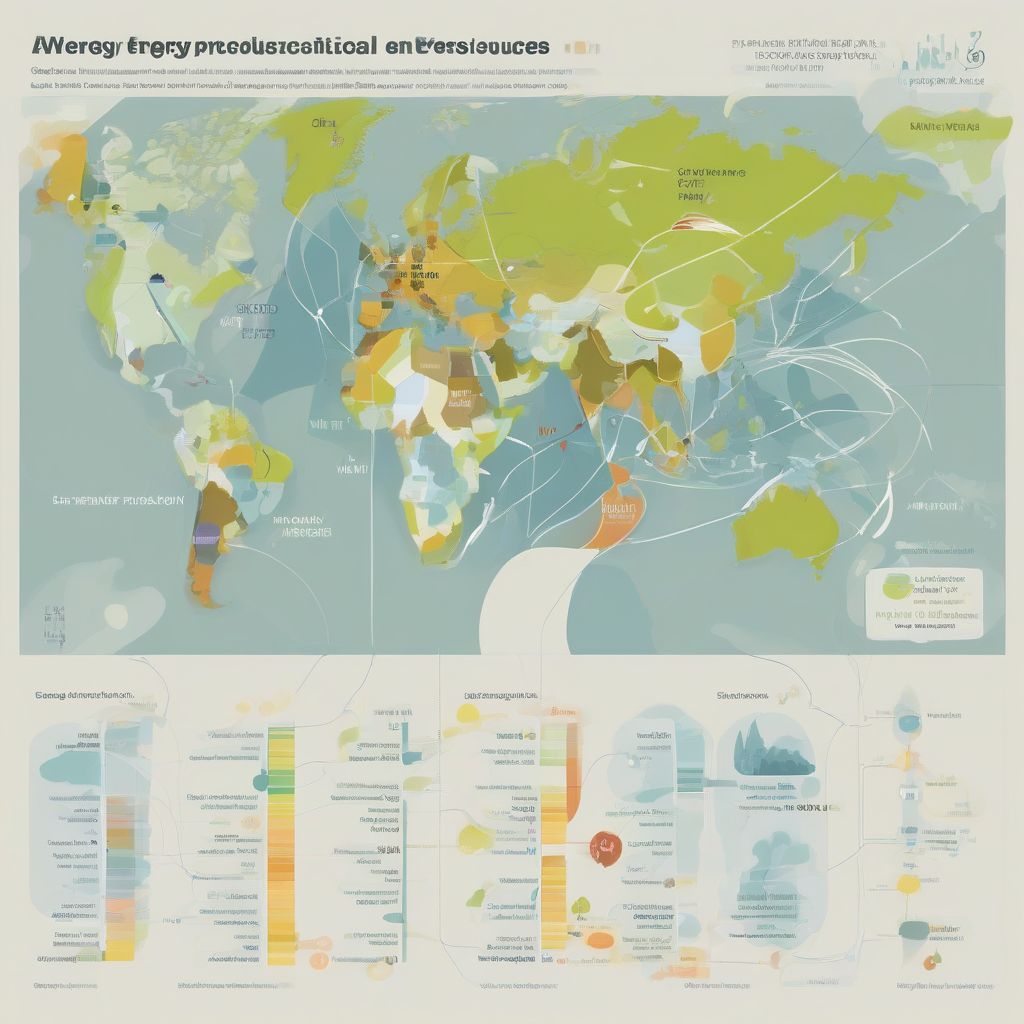Imagine a world powered entirely by clean energy, free from the volatile grip of fossil fuels and their geopolitical baggage. It’s a dream many share, but the path to this future is undeniably intertwined with the complex web of global politics. Geopolitical events, from trade wars to international agreements, send ripples through the clean energy sector, shaping its trajectory and influencing its potential. Let’s delve into this intricate relationship and explore how global events are reshaping the clean energy landscape.
How Geopolitics Shapes Clean Energy’s Destiny
The clean energy market isn’t an isolated island; it’s deeply embedded within the global political and economic system. This interconnectedness means that geopolitical events can significantly influence its development and deployment.
Trade Wars and Tariffs: A Double-Edged Sword
Trade disputes can disrupt supply chains for critical components like solar panels and wind turbine parts. For example, tariffs imposed on imported solar panels can increase the cost of clean energy projects, potentially slowing down their adoption. However, they can also stimulate domestic manufacturing, creating new jobs and bolstering local economies. This double-edged sword presents both challenges and opportunities for the clean energy sector.
International Agreements: Catalysts for Collaboration
International accords, such as the Paris Agreement, play a crucial role in driving global clean energy adoption. These agreements set targets, encourage collaboration, and provide a framework for international cooperation. They can also unlock financial resources and incentivize investments in clean energy technologies. For instance, the Paris Agreement’s commitment to limiting global warming has spurred many countries to accelerate their transition to renewable energy.
Political Instability and Resource Nationalism: Uncertain Terrain
Geopolitical instability in regions rich in critical minerals needed for clean energy technologies, such as lithium and cobalt, can create uncertainty in the market. Resource nationalism, where countries prioritize domestic use of these resources, can further disrupt supply chains and hinder the growth of clean energy industries.
Technological Innovation: A Geopolitical Game Changer
The race to develop and deploy advanced clean energy technologies is also a geopolitical competition. Countries leading in innovation stand to gain significant economic and strategic advantages. This competition can spur investment in research and development, accelerate technological breakthroughs, and ultimately drive down the cost of clean energy.
 Geopolitical Impact on Clean Energy
Geopolitical Impact on Clean Energy
Navigating the Geopolitical Landscape: Challenges and Opportunities
The geopolitical context presents both challenges and opportunities for the clean energy transition. Understanding these dynamics is crucial for businesses, policymakers, and individuals alike.
Energy Security: A Driving Force
The pursuit of energy security is a major driver of clean energy adoption. Countries seeking to reduce their reliance on volatile fossil fuel imports often turn to renewable sources like solar and wind. This shift can enhance energy independence and resilience to geopolitical shocks. “The future of energy security lies in diversification and decentralization, with clean energy playing a pivotal role,” notes Dr. Emily Carter, an expert in energy policy.
Economic Growth and Job Creation: A Green Dividend
The transition to clean energy can create significant economic opportunities. Investing in renewable energy projects generates jobs in manufacturing, installation, maintenance, and research. This “green dividend” can boost local economies and create pathways to sustainable development.
Climate Change Mitigation: A Global Imperative
Addressing climate change is a global imperative, and clean energy is a vital tool in this effort. International cooperation and policy frameworks are essential for accelerating the deployment of renewable energy technologies and reducing greenhouse gas emissions.
Adapting to a Changing World: The Need for Resilience
The clean energy sector must be resilient to geopolitical shocks and adapt to changing global dynamics. Diversifying supply chains, investing in domestic manufacturing, and fostering international collaboration are key strategies for navigating this complex landscape.
Clean Energy’s Future: A Geopolitical Crossroads
The future of clean energy is inextricably linked to the evolving geopolitical landscape. As the world grapples with issues like climate change, energy security, and economic development, the role of clean energy will become increasingly critical. Navigating this complex terrain requires collaboration, innovation, and a commitment to a sustainable future.
Conclusion
The impact of geopolitical events on clean energy markets is multifaceted and far-reaching. From trade wars disrupting supply chains to international agreements fostering collaboration, the interplay between global politics and clean energy is constantly evolving. While challenges like resource nationalism and political instability exist, opportunities for economic growth, enhanced energy security, and climate change mitigation abound. By understanding these dynamics and fostering international cooperation, we can navigate the geopolitical landscape and unlock the full potential of clean energy to create a more sustainable and prosperous future. We encourage you to share your thoughts and perspectives on this crucial topic in the comments below, and let us know how you see geopolitical events shaping the clean energy future. Explore more about clean energy and its intersection with global events on our website.



